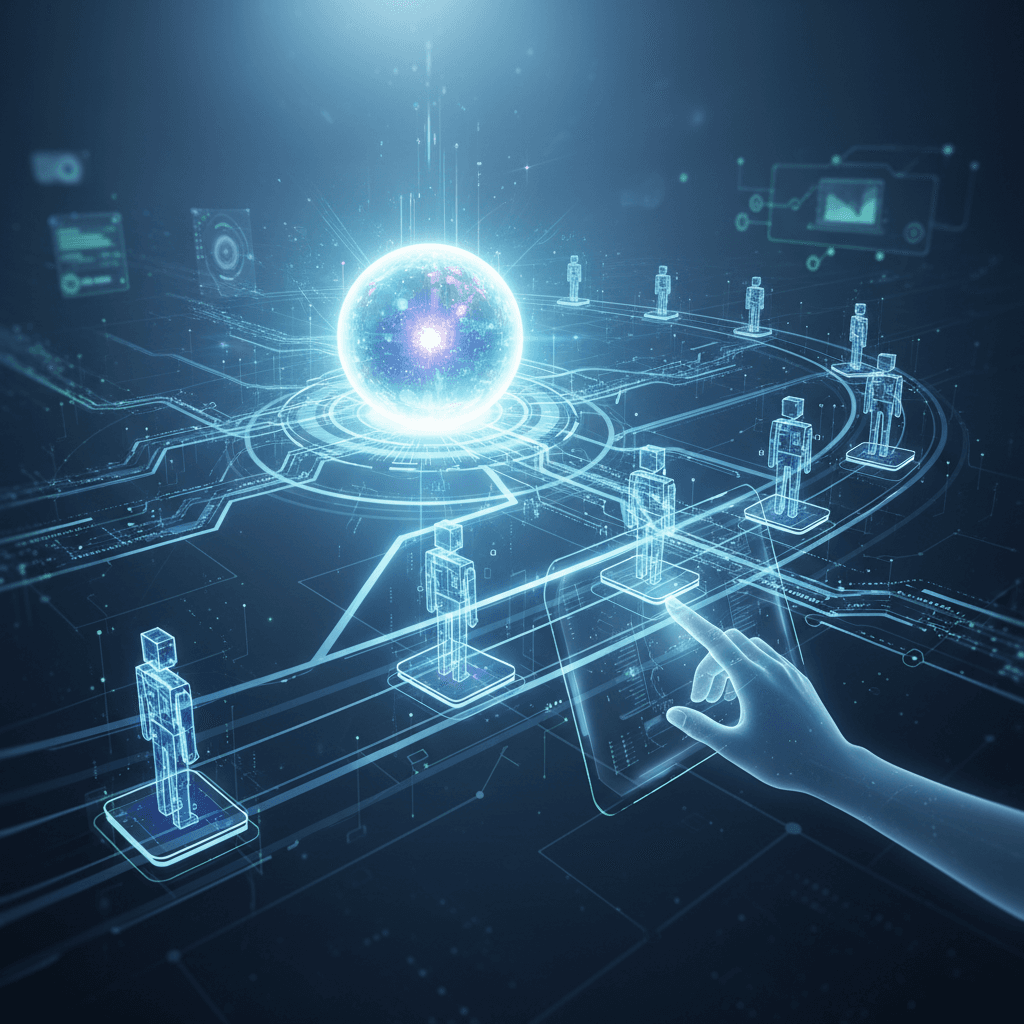Druid AI Unveils 'AI Agent Factory' for AI-Powered Autonomous Business Processes
Druid AI's "agent factory" introduces AI that builds AI, promising a self-scaling digital workforce for unprecedented enterprise automation.
October 23, 2025

Druid AI, an innovator in the enterprise artificial intelligence space, has unveiled a significant leap towards autonomous business processes with the introduction of its "AI agent factory." Announced at the company's Symbiosis 4 event in London on October 22, the new system, termed Virtual Authoring Teams, features a new generation of AI agents capable of designing, testing, and deploying other specialized AI agents.[1][2][3] This development signals a strategic shift from conventional automation tools to a scalable, self-perpetuating model for creating digital workers, aiming to redefine the speed and accessibility of enterprise-grade AI adoption.
The core of this new initiative is a framework designed to function like a real-world Center of Excellence for automation.[2] At the heart of the system is the Druid Conductor, an advanced orchestration engine that acts as a central control layer.[4] This engine integrates disparate data sources, enterprise systems, and human oversight into a unified, intelligent framework.[4] According to the company, the Virtual Authoring Teams operate within this environment, leveraging its capabilities to build new agents. The process is designed to be accessible to non-technical business users, who can co-create intelligent agents through natural language interactions.[1][2] Druid AI claims this "factory model" can accelerate the creation of enterprise-grade AI agents by up to ten times, allowing technical teams to scale delivery to more than 25 agents per month with full compliance and orchestration controls.[1][2] This methodology aims to empower employees to build new automated workflows on-the-fly, transforming a complex technical challenge into a conversational process.
To accelerate the adoption of this technology, Druid AI also launched its Agentic Marketplace, a curated ecosystem of pre-built, ready-to-deploy AI agents tailored for specific industries.[1][2] This repository provides businesses with a faster time-to-value by offering solutions for sectors including banking, healthcare, higher education, and insurance.[1][2] The pre-built agents are designed with enterprise-grade governance and security, providing a direct pathway for companies to implement agentic AI for specific, high-impact use cases. Examples of such applications range from automating the entire employee onboarding and offboarding lifecycle in human resources to managing loan applications in banking and handling patient triage and appointment scheduling in healthcare. The goal is to move beyond simple task automation to orchestrating complex, end-to-end business processes that require interaction with multiple enterprise systems like CRMs and ERPs.[5]
The announcement places Druid AI in an increasingly competitive "agentic battleground."[4] The company is not alone in its focus on creating sophisticated, multi-agent orchestration environments.[4] Firms like Cognigy, Kore.ai, and Amelia have made significant investments in similar platforms, while tech giants like Google with its Vertex AI Agents and Microsoft with its Copilot Studio are integrating agentic capabilities deep into their enterprise ecosystems.[4] The primary differentiator for Druid appears to be the meta-level capability of its Virtual Authoring Teams—the concept of AI agents that can reason, test, and build other AI agents. This "AI that actually works," as CEO Joe Kim put it, is a bold claim intended to separate Druid from a market filled with experimental frameworks.[4] The broader implication of this trend is a fundamental shift in the nature of work, where human employees may increasingly act as supervisors and orchestrators of a digital workforce, focusing on strategic outcomes while agents handle complex, multi-step tasks autonomously.
In conclusion, Druid AI's unveiling of an AI agent factory marks a forward-looking step in the evolution of enterprise automation. By creating a system where AI can autonomously replicate and deploy itself in the form of specialized agents, the company is addressing the critical business needs for scalability, speed, and accessibility. While the long-term impact and competitive standing of this "factory model" will become clearer over time, the announcement itself underscores a powerful trend: the transition from AI as a tool to AI as a collaborative, self-scaling workforce. This move promises to further accelerate digital transformation, pushing the boundaries of what is possible in real-world business autonomy and reshaping the future of human-AI interaction in the enterprise.